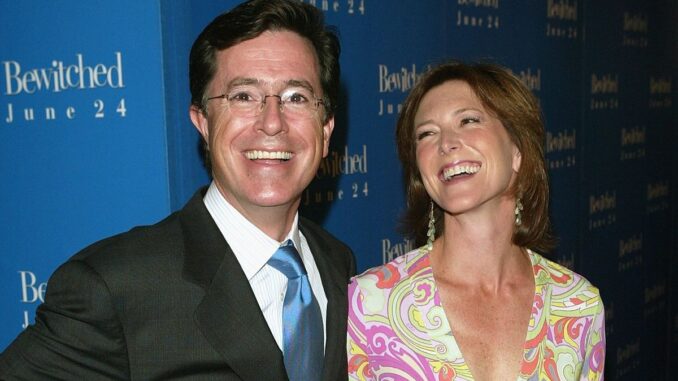
From Quirky Guest to Grounded Anchor: Elsbeth Tascioni’s Evolution on “The Good Wife” and “The Good Fight”
Elsbeth Tascioni, the eccentric, brilliant, and undeniably unforgettable lawyer, began her life in the “Good Wife” universe as a recurring guest star, a burst of manic energy injected into the often-strained proceedings of Lockhart/Gardner. Her journey from a memorable oddity to a fully realized, complex character, and eventually to a starring role on “The Good Fight,” is a testament to the power of compelling character development and the audience’s yearning for genuine, unconventional heroes. Elsbeth’s evolution highlights the importance of acknowledging the humanity behind perceived eccentricities, showcasing how a character initially defined by her quirks can become a deeply sympathetic and fiercely intelligent anchor for a narrative.
Initially, Elsbeth was a caricature. She spoke in tangents, saw patterns where others didn’t, and possessed an unsettling ability to zero in on the truth through a haze of seemingly unrelated observations. Her fashion choices were…distinctive. She was the embodiment of the “crazy genius” trope, brought in to solve particularly knotty cases with her unorthodox methods. In “The Good Wife,” she often served as comic relief, a counterpoint to the often-grim realities of the legal world. She was the guest who overstayed her welcome, but in the best possible way. We laughed at her, but we also recognized her undeniable brilliance.
However, as Elsbeth appeared more frequently, the writers began to peel back the layers of her persona. We saw glimpses of vulnerability beneath the surface of her seemingly chaotic exterior. Her relationship with her husband, Peter, revealed a groundedness and deep love that challenged our initial assumptions. We learned that her eccentricities were not simply random quirks, but coping mechanisms, a way to navigate a world that often felt too overwhelming. Her hyper-vigilance, her tendency to see connections that others missed, stemmed from a deep empathy and a powerful desire to understand the motivations behind human behavior.
This slow revelation of Elsbeth’s inner life was crucial to her transformation. She moved beyond being a one-dimensional joke and became a fully realized human being. We began to understand her motivations, to see the logic behind her seemingly illogical actions. This newfound understanding fostered empathy, and audiences began to root for her, not just because she was funny, but because she was fundamentally good, a champion for the underdog who saw the potential for justice in even the most hopeless situations.
The transition to a main character in “The Good Fight” cemented this evolution. In this new context, Elsbeth was no longer just a quirky guest, but a seasoned investigator navigating the increasingly complex and morally ambiguous landscape of the legal system. She was given more agency, more emotional depth, and more opportunities to demonstrate the power of her unique perspective.
The show allowed us to see her professional life in greater detail, showcasing her strategic brilliance and her unwavering commitment to ethical practice. While her eccentricities remained, they were no longer the defining characteristic. They were simply part of a complex and multifaceted personality. We saw her struggle with doubt, experience heartbreak, and grapple with the ethical dilemmas that plagued her colleagues.
Furthermore, “The Good Fight” provided Elsbeth with a platform to demonstrate her leadership qualities. She became a mentor figure, offering guidance and support to younger lawyers, encouraging them to embrace their own individuality and to fight for what they believe in. She was no longer just a brilliant outsider; she was a force for good, a beacon of integrity in a world that often seemed to lack it.
In conclusion, Elsbeth Tascioni’s journey from a memorable guest star to a compelling main character is a testament to the power of nuanced character development. By peeling back the layers of her initially eccentric persona, the writers revealed a deeply empathetic, fiercely intelligent, and ultimately inspiring character. Her evolution highlights the importance of looking beyond superficial appearances, recognizing the humanity behind perceived eccentricities, and celebrating the power of unconventional thinking. Elsbeth’s story reminds us that true strength lies not in conformity, but in embracing our individuality and using our unique perspectives to make the world a better place. She transitioned from a source of comic relief to a grounded anchor, reminding us that even the quirkiest among us can become pillars of justice and integrity. And in a world that often feels cynical and disheartening, Elsbeth Tascioni offers a refreshing reminder that optimism, empathy, and a healthy dose of eccentricity can still prevail.
